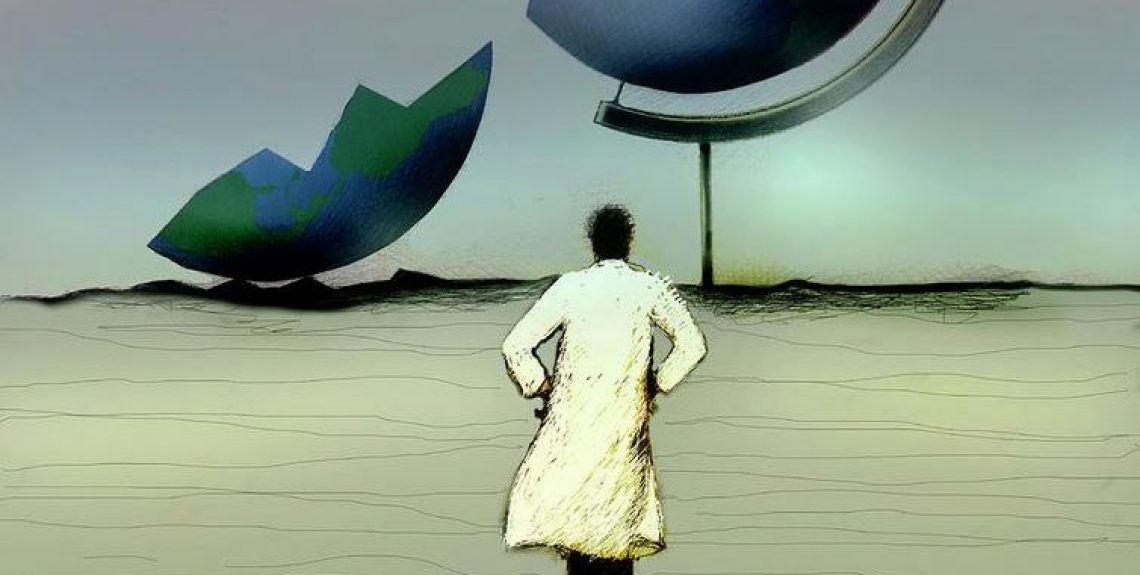Pandemics are nothing new in human history and also in contemporary one. Before this one, that by the 15th of April had a tally of 1.914.916 confirmed cases and 123.010 deaths, pandemics like the Asiatic and the Hong Kong flu had 1,1 million deaths each and the recent H1N1 swine flu had between 151.000 and 575.000 dead. The effects of this pandemic, evidently are not yet relevant in terms of casualties, but are already influencing the overall viability of global politics, markets and economies.
The Foundation has published last year the volume “Shaping Security Horizons – Strategic Trends (2012-2019)” where a number of important trends where anticipated on a short term basis (1-2 years); Among health specialists, the pandemic has been anticipated as an inevitable event and also at top US presidential level (transition briefings in January 2017 and Crimson Contagion 2019 exercise in August 2019).
The nature of the event
The COVID-19 pandemic for what it is: a global stressor (not just a stress test, but a real life stressing agent), putting increased pressure on already very visible and vulnerable fault lines and global shaping flows. Among the flows directly affected in a considerable measure are:
-
The ecosystem (especially the human/animal genetic border, as defined by Yuval Harari),
-
The flow of food and agrotech commodities and underlying techniques,
-
Migrations, both permanent and temporary, real and virtual,
-
Energy, both fossil and renewable,
-
Financial and invested capitals,
-
Knowledge flows, especially in orienting research sectors.
The last, but not least flow, namely drinkable water, will become an issue the more the economic recession progresses, possibly providing the basis for very violent disorders if now water wars.
Their combined effect is having an impact on two transcontinental issues, considered by the Shaping Security Horizons book: the course of globalisation and the evolution and diffusion of democratic systems.
Effects on democracy
Until now freedom and democracy are globally in retreat as Freedom House surveys show. In the 2008-2018 period free countries passed from 46,1% of global population to 44,1%, partly free from 32,2% to 30,3% and population in not free countries rose from 21,8% to 25,4%. It is still a relatively small one, compared to the democratisation wave in the past Nineties, but it is a persistent trend and the news coming from some EU and NATO countries appear less than encouraging. Nevertheless, even if the endgame of the pandemic is not in sight, the first temporary results about how political systems manage this emergency are interesting.
For the moment roughly five countries stand out rather positively for their results, some despite initial serious errors: China, Japan, Taiwan, Singapore and South Korea. Leaving aside the civilizational clash nonsense, three are democracies, one is a partially free regime (according to the Freedom House Index) and one is a single-party regime. More sophisticated safety rankings put among the top 10 countries seven democracies, one partially free country, one partially free special region s and one single-party country.
Repercussions on globalisation
Different is the outlook for the multilateral framework that underpins a still existing globalisation, particularly because political elites are often out of sync with economic realities. The response of each major government, particularly in the European Union, has been rather uncoordinated and also NATO, until now, has its own problems in providing a coherent response. Usually international bodies get the blame, but they have an inherently more complex decision-making process, often slowed by the biggest countries.
The basis of the erosion of globalisation, that is the US effort to roll back Beijing’s global economic competitiveness and political influence together with a Chinese tough strategic assertiveness in the seas adjoining the country and in markets penetration, remained undented by the actual emergency. At least until November 2020, the erosion of the multilateral framework will be pursued at the political level.
Double storm ahead
Nevertheless, from viewpoint of the Shaping Security Horizons book this competition is unfortunately less worrying than two major threats at the global level: another severe financial and economic crisis in 2020 and the possibility of a major war, if the globalisation/de-globalisation dynamics were mismanaged at the highest political level.
As the economist Nouriel Roubini correctly points out, this new crisis underway is much faster in its development by two orders of magnitude in terms of time (weeks instead of years) and because it represents a double shock on demand and supply. If the virus diffusion is not energetically suppressed and blanket financial assistance measures are not swift enough to bridge the gap for ordinary citizens who have lost income, the serious recession risks to become a global record economic depression, dwarfing the 1929 Great Depression. The spectre of the repetition of the past late Twenties that brought dictatorships to power in Europe on the wave of depression and then to war, is far from an academic speculation, especially if the call to arms could be attractive for democracies that eventually are neither opulent nor hegemonic any more.
In conclusion: the pandemic is a global stressor that for the time being has heavily affected political structures and dynamics that were already fragile, including international institutions even without specific national hacking.
The crisis was in the cards, but its facts were ignored exactly as in 2006 and this is now a crucible for democracies and a possible international order. Many actors behaved as is they were alone, yet many facts show that no one is safe alone and can solve the crisis by himself. We are indeed on a tipping point where only political wisdom will avoid taking while sleepwalking the well-known path to world depression and war.
Alessandro Politi
Director of the NATO Defense College Foundation






















